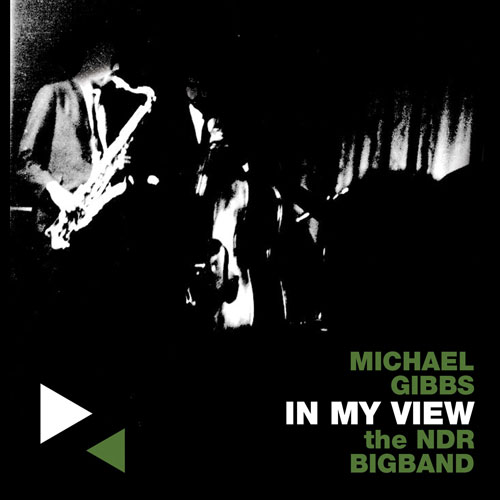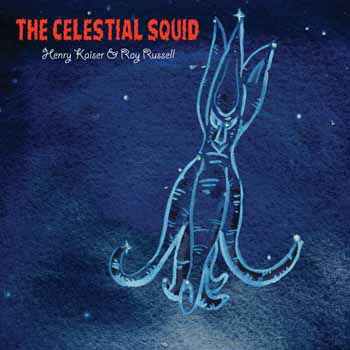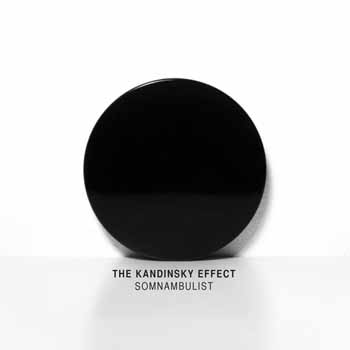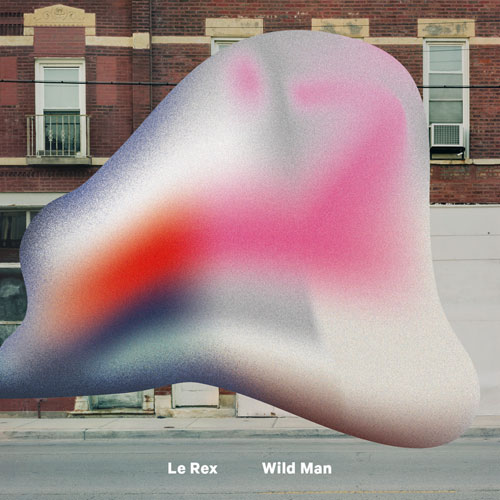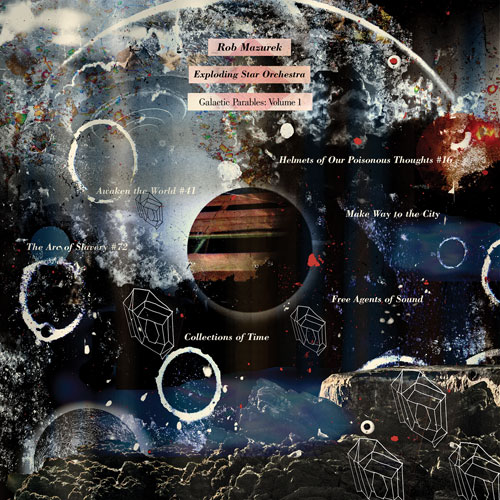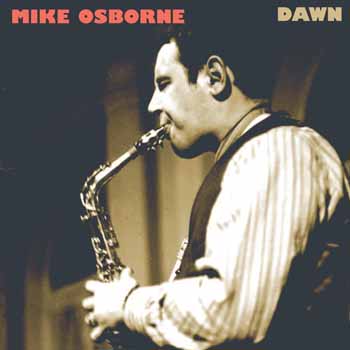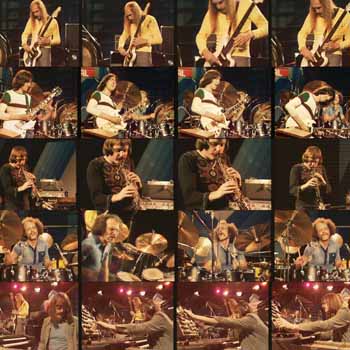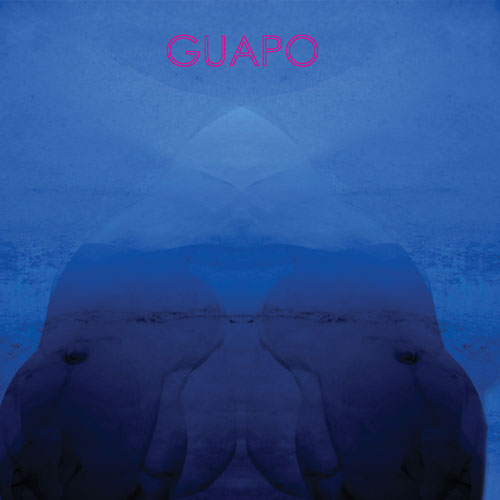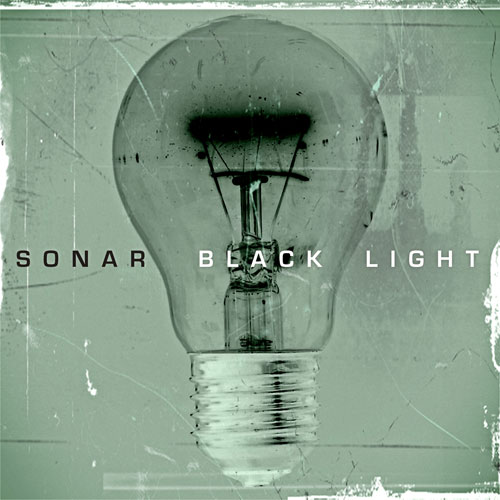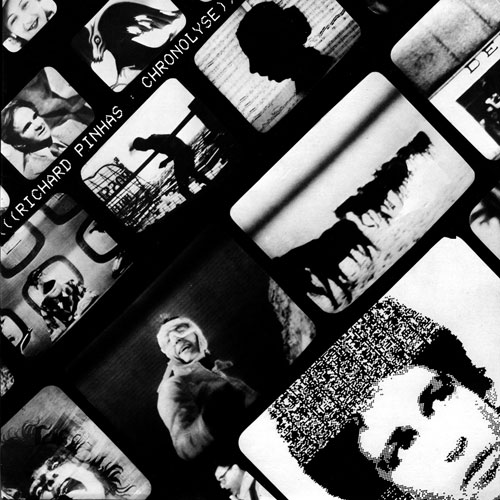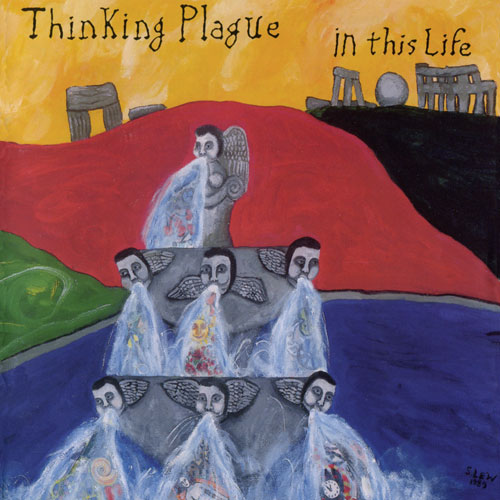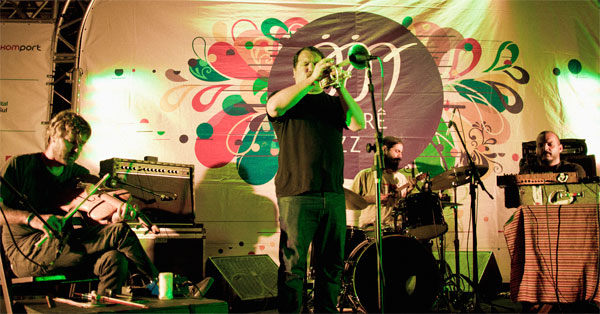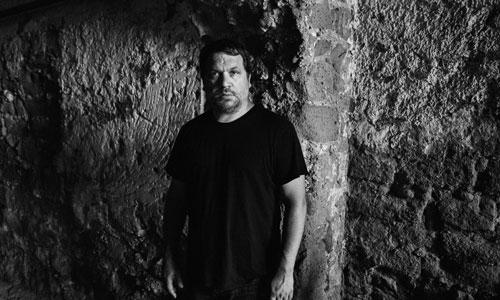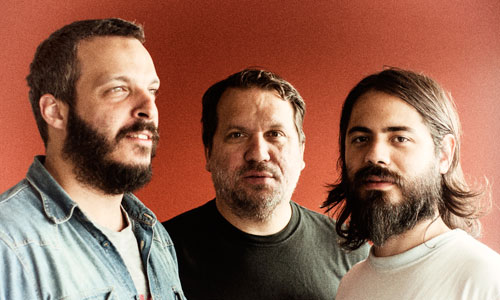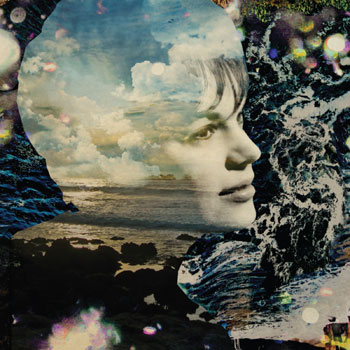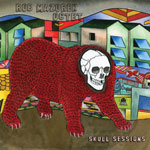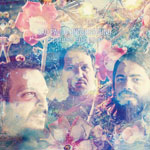When is a guitar not a guitar? When it's played by the inimitable Jonathan Badger. Not that he doesn't have a solid grounding in the six-string essentials -- Badger's been
playing guitar since age 5, and has studied under none other than King Crimson mastermind Robert Fripp. But his astonishing approach to the guitar is so unlike anyone
else's that he might almost as well be playing an entirely different instrument. (In a way, he is, as you'll learn in a moment.) On his stunning third studio album (and first for
Cuneiform), Verse, Badger proves that if you want to make the kind of music no one's ever heard before, you've got to invent your own world from the
ground up. Nourished by Baltimore's vibrant experimental music scene, Badger has created an artistic universe that is technologically unprecedented, radically multidisciplinary,
conceptually fascinating, and musically captivating. The music on Verse, says Badger, "flows in the post-rock and minimalist veins of contemporary music," while the concepts
that fertilize it derive from ancient philosophical and poetic tracts that he had explored in his recently published book.
If you want a little peek behind the wizard's cape, Badger's basic approach involves sending two signals out of his guitar -- one is a standard analog signal that generates relatively
conventional guitar tones, but the other is a digital feed that runs through a computer system he programmed himself (naturally) to trigger samples from a broad array of orchestral
instruments.
That's the setup that powers Verse. His rig has evolved a lot since 2006's Metasonic (on his own High Horse label) and 2010's Unsung Stories from Lily's Days as a Solar Astronaut (MT6 Records), not to mention his live releases, Taps (2007) and Summer Electra (2011), both on High Horse. But for Verse, Badger expanded his sonic universe. While his own unique system's bewitching (and at times even
bewildering) bounty of sonic sources dominates the album, he also employs other players to augment his musical palette further still, bringing in brass, strings, and even a
beatboxer.
Badger's fondness for inserting himself into surprising circumstances goes all the way back to his college days, during which he was commissioned to compose both a ballet (On Wings of Angels, premiered in Berlin and performed in Dallas and Atlanta) and an opera (Dance of the Spiders, at Boston's Emerson
College). Soon after college, Badger began formal study of philosophy and earned his PhD in political philosophy from Fordham University. His dissertation was on Nietzsche's
interpretation of Plato. In the middle of that work, he returned to music in an academic setting, and studied at the graduate level at Duke University with Steven Jaffe, Scott
Lindroth and John Harbison.
But it was after he began working as a professor at St. John's College in Annapolis, MD that Badger's path took a turn that profoundly informed his artistic vision. He became intensely
involved in the Guitar Craft school founded by Robert Fripp. Over a seven-year period, Badger eagerly assimilated Guitar Craft's combination of musical and philosophical
principles, while taking a number of courses with Fripp himself, in the U.S., Argentina, and Italy.
Not only did this experience turn his head around aesthetically, on a more pragmatic level it led him to working with his fellow Guitar Craft students in various groups in the
Baltimore/Washington D.C. area. But it wasn't long before he found his own voice -- one so daringly individual that it led him to work in a strictly solo format & until now.
Badger published a book, Sophocles and the Politics of Tragedy: Cities and Transcendence (2012: Routledge Press) that explored his ideas about the
interaction of artistic and philosophical ideas. But Verse takes that intersection to a new level. Discussing the concept, he explains, "The idea of verse points beyond poetry
and philosophy to that which stands in unity behind their apparent separateness."
"This album is a musical version of the ideas I worked through in the book," says Badger. He describes Verse as both "emblematic of mortality" and possessing "rich layers of dark
and light." Even the track titles on the mostly instrumental album illustrate Badger's knack for juxtaposition, such as the combination of hominess and horror inherent in the tune "It
came down from the night and stood on the porch until I invited it in for tea," a cut where unearthly explosions of sound share space with meditative drones and angular but almost
endearingly clunky piano splashes.
In a similar manner, musing on "The Bear," Badger suggests that "Bears are cuddly but also extremely deadly," adding mordantly, "Children like to sleep with them." Taking the
contrasting-concepts theme even further, Badger brings the inhuman and the humane together on this track through the unlikely device of the banjo. "The banjo on 'Bear' is in duet with
the computer," he reveals. "The computer mimics the banjo waveform, producing a jaunty electronic burble."
As a thinking man's guitar anti-hero, Badger could be seen as the latest link in a chain that reaches back to forward-looking six-string iconoclasts like Frank Zappa, Richard
Pinhas, and Badger's old teacher, Robert Fripp. But anyone who has absorbed the fractal electronic visions of electronica pioneers like Aphex Twin and Squarepusher, or
been bowled over by the eclectic post-rock sound constructions of Tortoise or Godspeed You! Black Emperor should be able to find their way into Badger's bewitching
world.
And throughout Verse, the musical DNA of Badger's guitar recombines in a constant, kaleidoscopic fashion, melding the organic and the electronic in ever-shifting dynamics. At the
same time, Badger's own efforts intertwine with the interjections of his guests on trumpet, sax, violin, cello, and more. The sound all these elements make together bears elements of
everything from post-rock to avant-garde experimentalism and contemporary classical composition, but for all these seeming disparities, Verse undeniably offers up a
journey.
"The first part of the record is naive and blithe-minded," says Badger, "but gives way to somber recognition," much like the trip we take through life itself. For the trip to be a
memorable one, though, you need a unique guide, and it's abundantly clear that the sonic Sherpa leading you through Verse is about as uncommon as they
come.

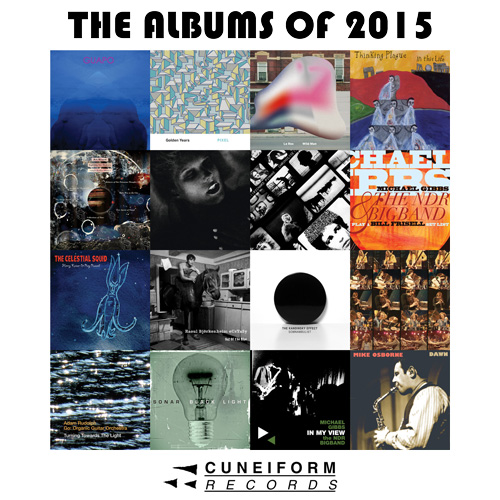
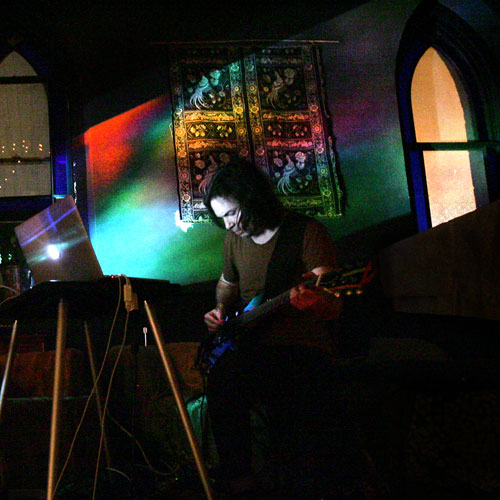
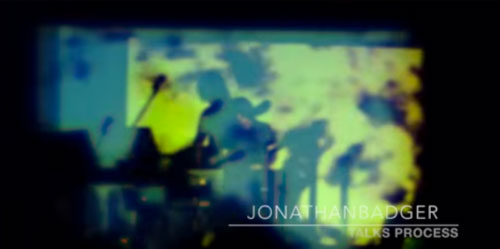
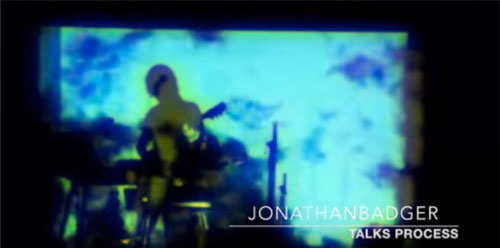

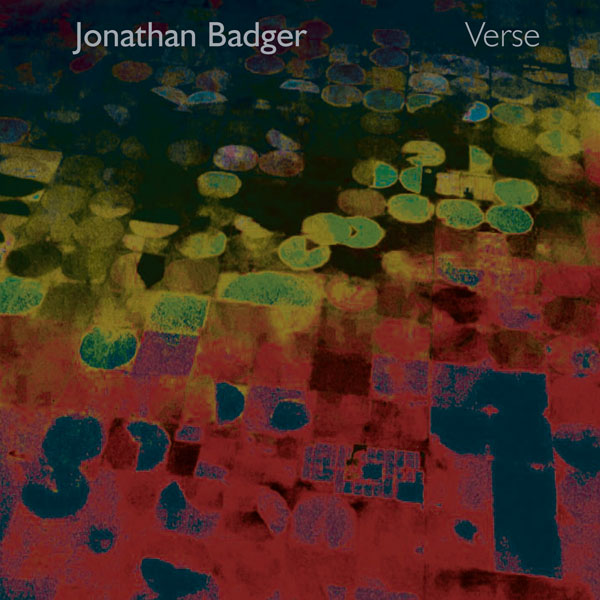

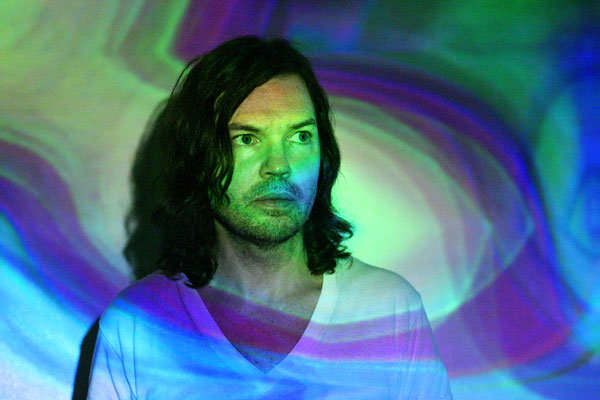
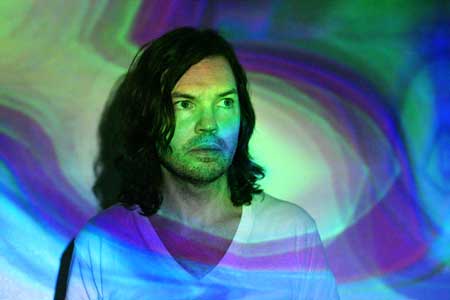
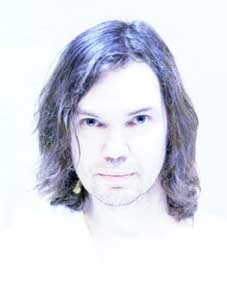
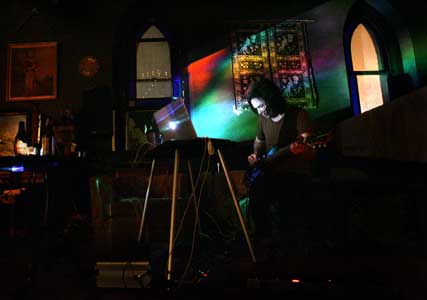
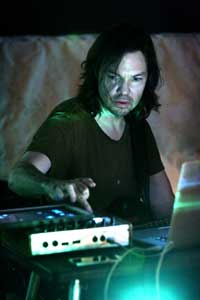
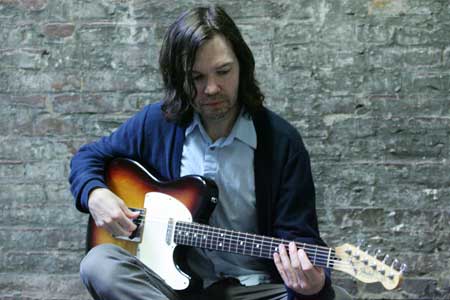
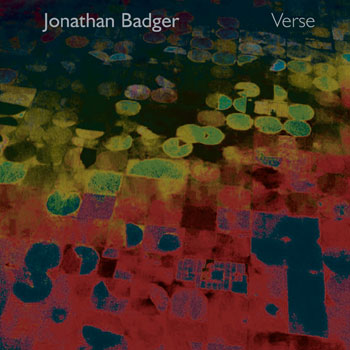

 PROMOTIONAL TRACK:
PROMOTIONAL TRACK:
